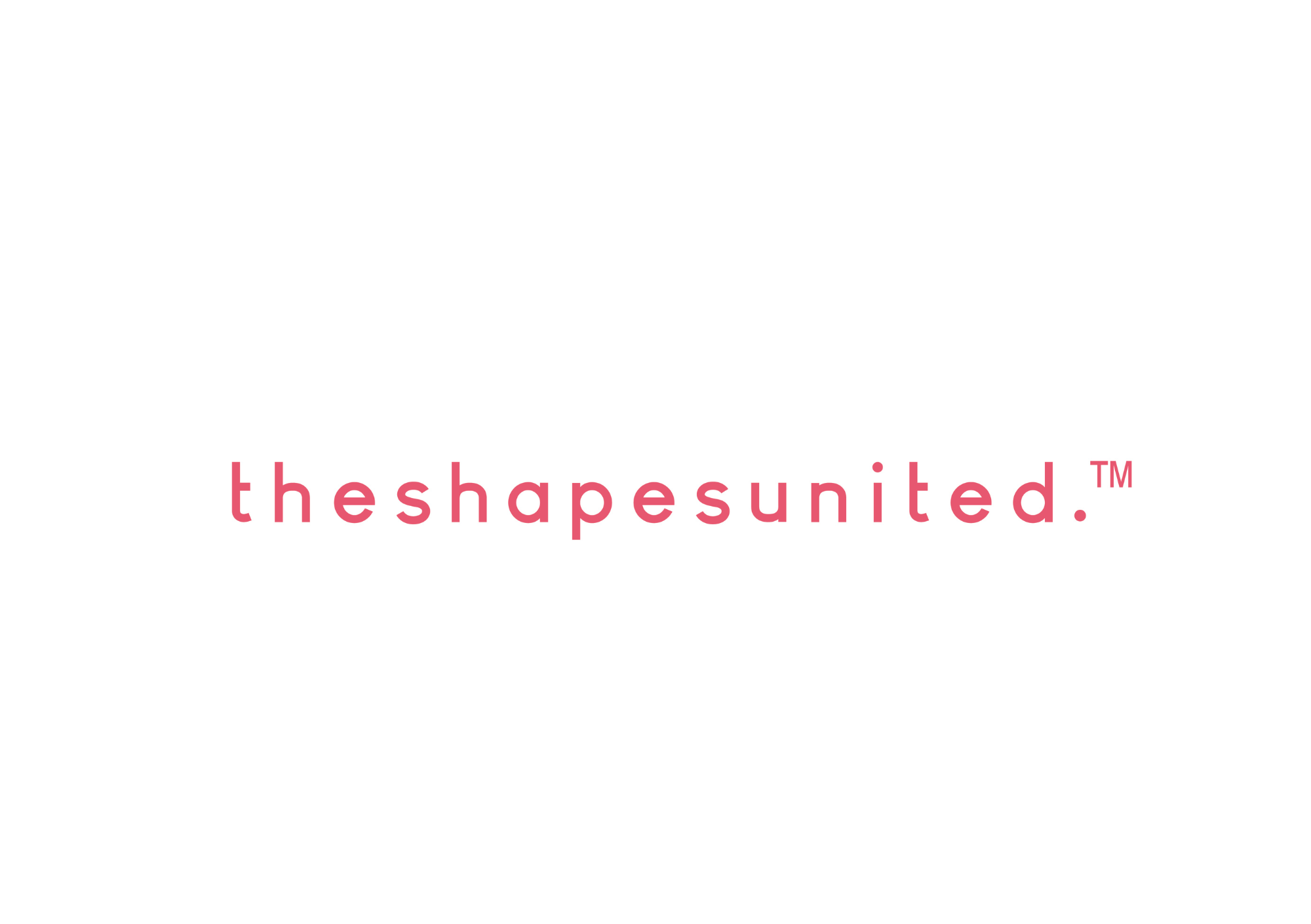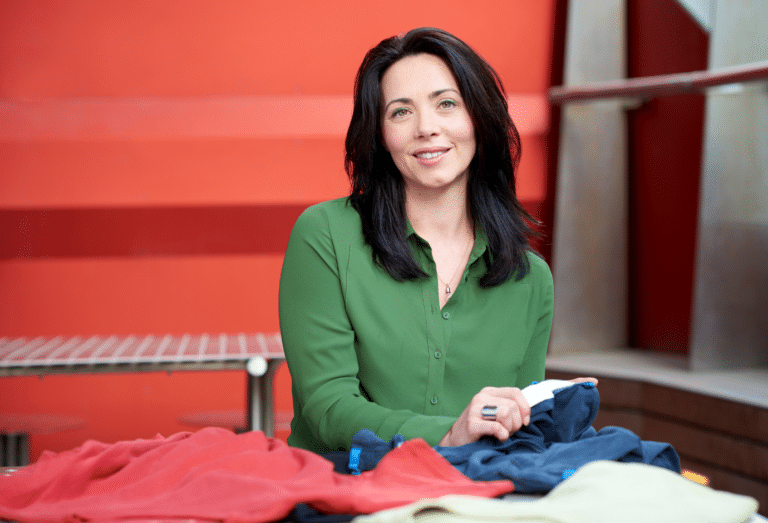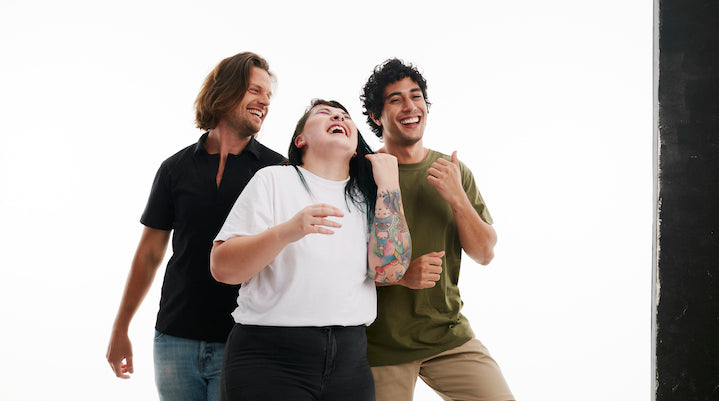"I was in my 30s and working in music entertainment," says Weber.
"I was really surprised to find that the only adaptive clothing available was for older generations."
Weber created her own clothes to wear throughout her lengthy rehabilitation, which involved multiple surgeries.
This experience inspired her to launch the clothing label, The Shapes United. The brand has recently become the first Australian adaptive fashion label to be sold through the US retail chain, Walmart.
"In some ways, I feel like I'm more of a functional designer than a fashion designer," says Weber.
Customer-first
Weber's design process always starts by looking at the functional needs of the customer, including how they move throughout the day.
If someone has difficulty lifting their arms, a shirt with a side opening and Velcro fastenings may allow them to dress with ease.
Magnetic buttons can enable someone with limited hand strength or dexterity to independently fasten their clothing.
How clothes feel is also important for their functionality. Weber doesn't include tags in her garments, as they can cause skin or sensory irritation.
'Looks like any fashionable piece of clothing'
You might not even realise that someone is wearing adaptive clothing.
Carol Taylor is the Head Designer of the adaptive fashion label Christina Stephens. She strives to create designs that "look like any other fashionable mainstream piece of clothing".
The resulting garments look stylish and on trend. But they also contain discrete functionally features, such as access points that allow someone to adjust their prosthesis, empty a catheter or ostomy bag.
Fabric selection is also carefully considered, as it can impact someone's temperature control, nerve pain and other sensory issues.
"No two disabilities are the same," says Taylor.
A key part of her design process is listening to the disability community to understand their wants and needs.
This deep engagement with people with disability can also result in exciting innovations.
Rip-resistant fabric innovation
Taylor recently worked with a team to develop bespoke denim for people who wear prostheses.
The fibreglass and titanium used in prostheses have traditionally caused friction tears in even the toughest fabrics.
The new denim developed by the team is resistant to tearing. This solution gives clothing a longer life, which saves the customer money as well as reduces landfill.
Clothing design can impact the health and wellbeing of people with disability — getting it wrong can have significant consequences.
As a wheelchair user, Taylor understands the importance of seam placement.
"When designing for the part-time or permanently seated, we have a real understanding of the dangers of life-threatening pressure sores," she says.
Typically, pants have a centre-back seam. This feature can become a point of pressure for someone who is seated for long periods of time.
Prolonged pressure can result in skin breaking down. Pressure injuries are a serious issue requiring treatment. This may include wound dressings, bedrest or even a hospital admission.
Cute clothes matter
Taylor's first exposure to adaptive fashion occurred after she sustained a spinal cord injury in 2001.
"Upon discharge from hospital it was immediately obvious that as a person with disability I was excluded from mainstream fashion," she says.
"Everything that was available for someone like me made me feel decades older than I was."
This experience made Taylor feel isolated and underestimated by society, which negatively impacted her mental health. Taylor began to design her own clothes while also running her law practice full-time. She found that having fashionable clothing options empowering.
"People underestimate the power of fashion," she says.
"It affects one's core sense of identity and confidence."
Taylor says that her change in attire didn't just cause a shift within herself. "When I started wearing my own designs," she says. "I immediately noticed a difference in the way people treated me."
This included people beginning to address her directly, rather than deferring their questions to her husband.
An industry on the rise
The global adaptive clothing market is forecasted to be worth $400 billion by 2026.
Most of the growth in the adaptive fashion market is happening in Europe and North America. Taylor says that local retailers have yet to recognise the "power of the disability dollar".
"Most people with disabilities would like to enjoy the same shopping experience as everyone else," says Taylor.
"Many large retailers have accessible change rooms, but they don't carry accessible clothing."
Weber agrees that providing adaptive clothing is important to reflect the diversity that exists within society.
"Our stores should represent the people of our community and provide solutions for everybody."
WORDS BY FIONA MURPHY FOR ABC EVERYDAY


